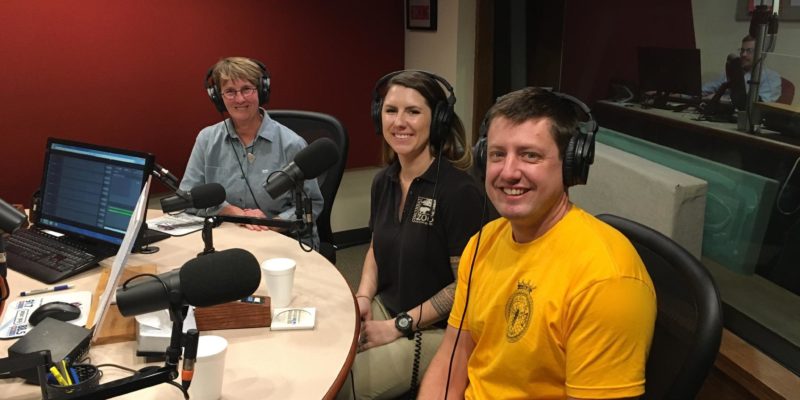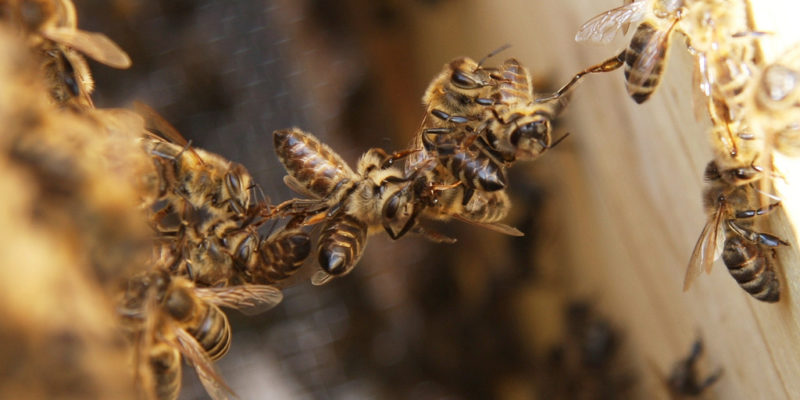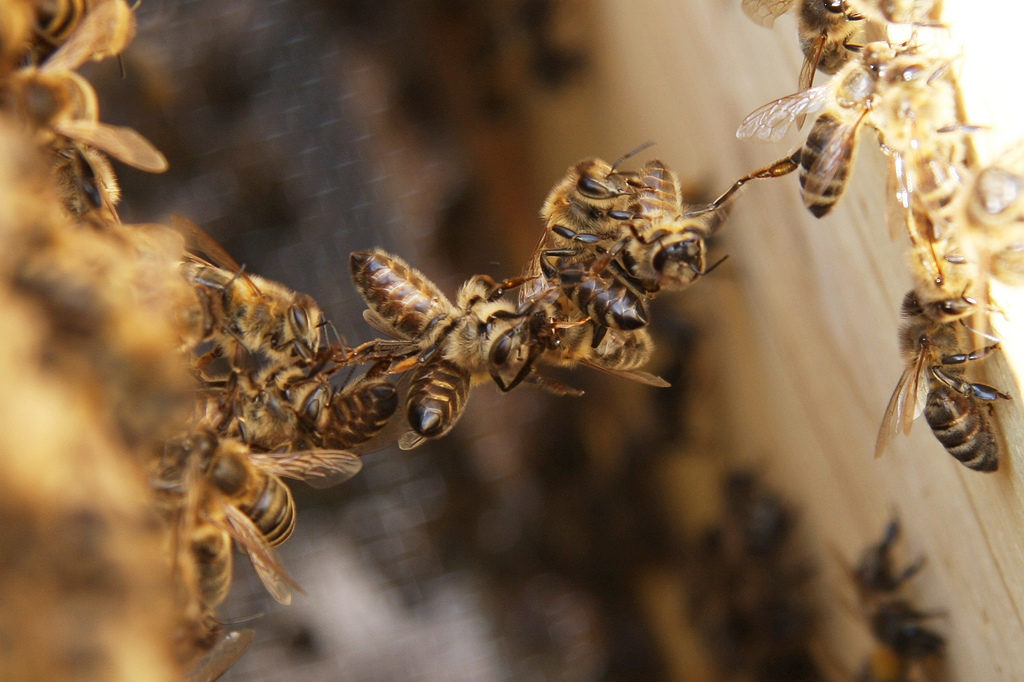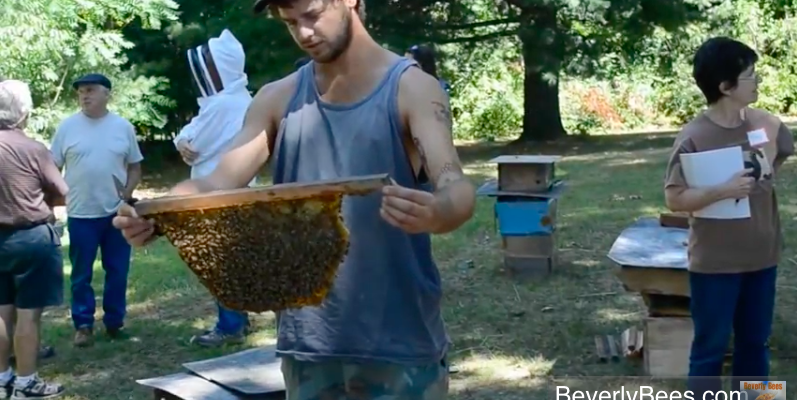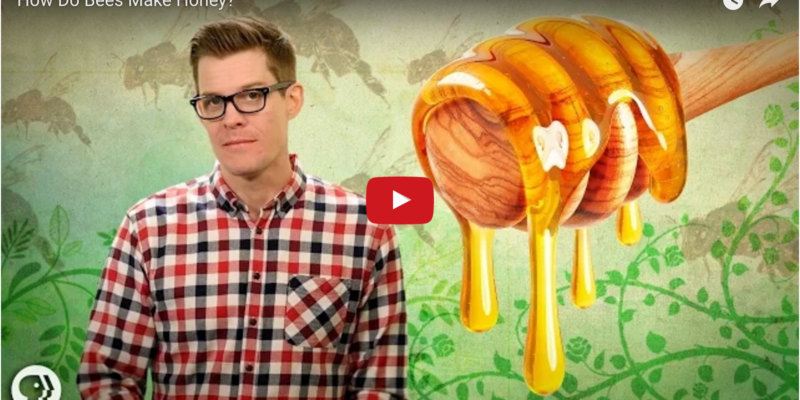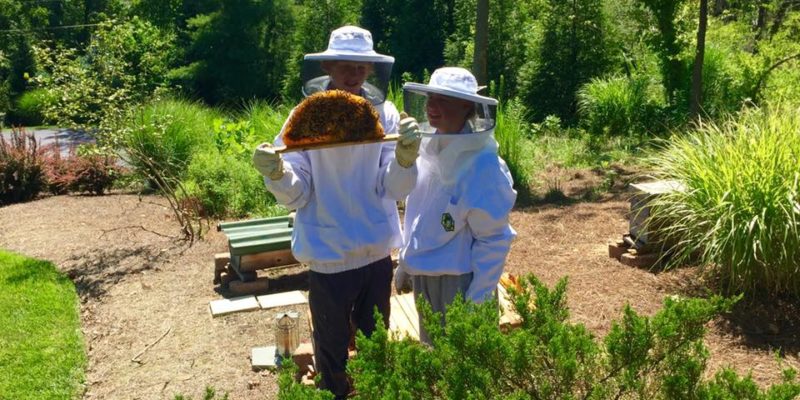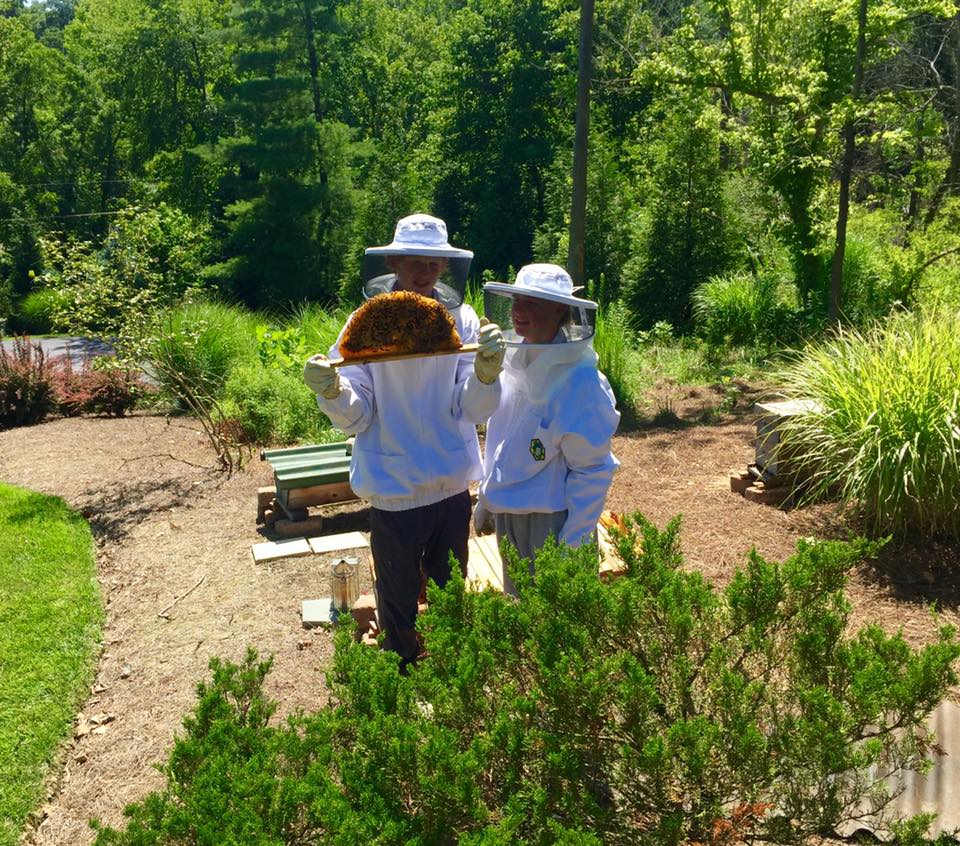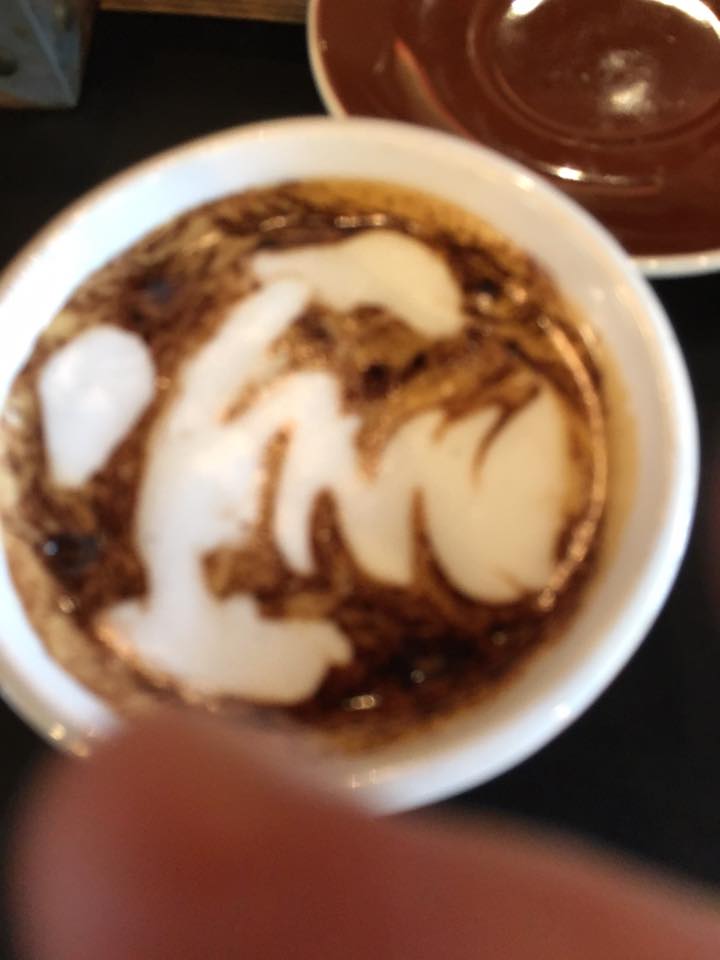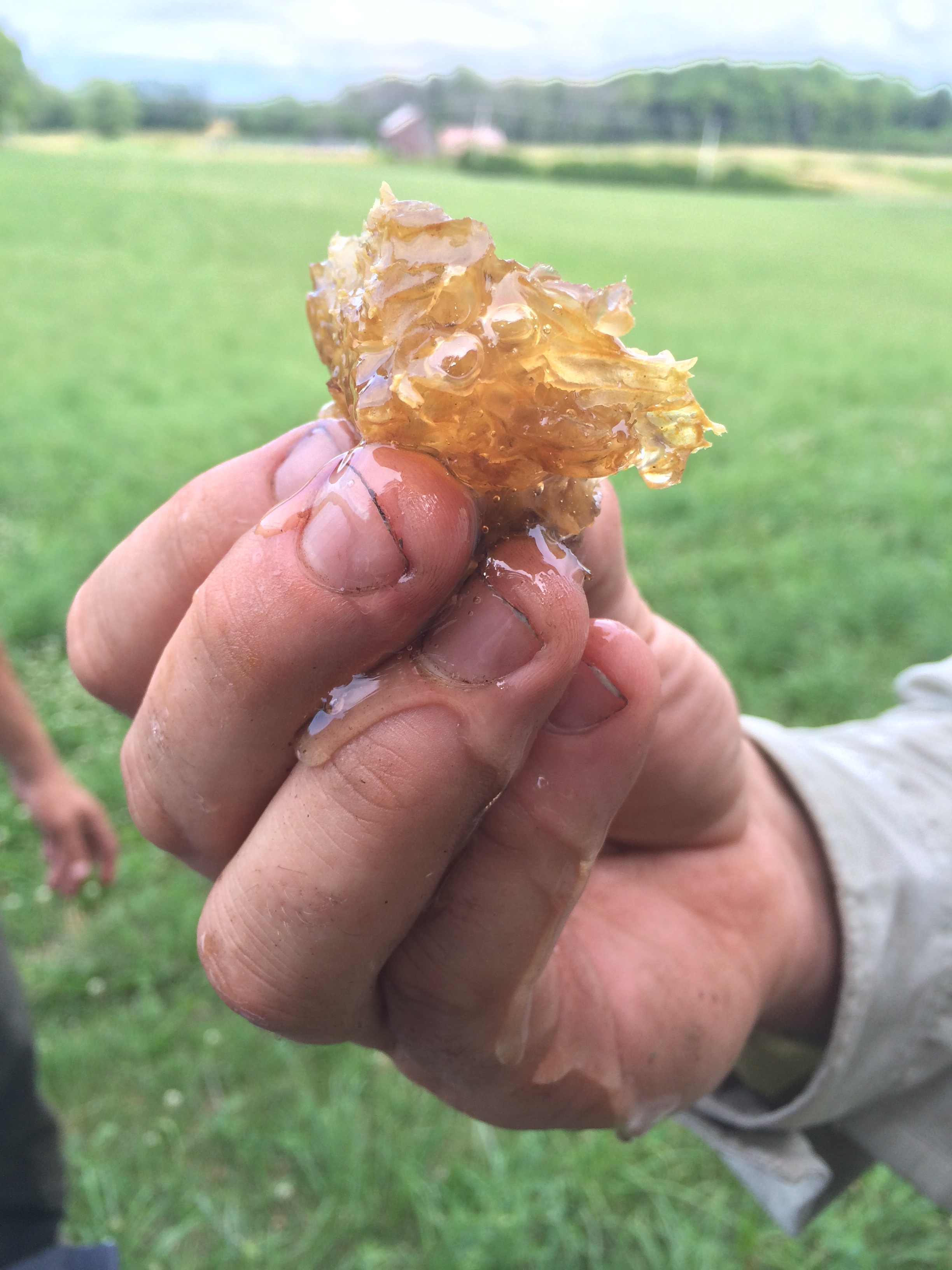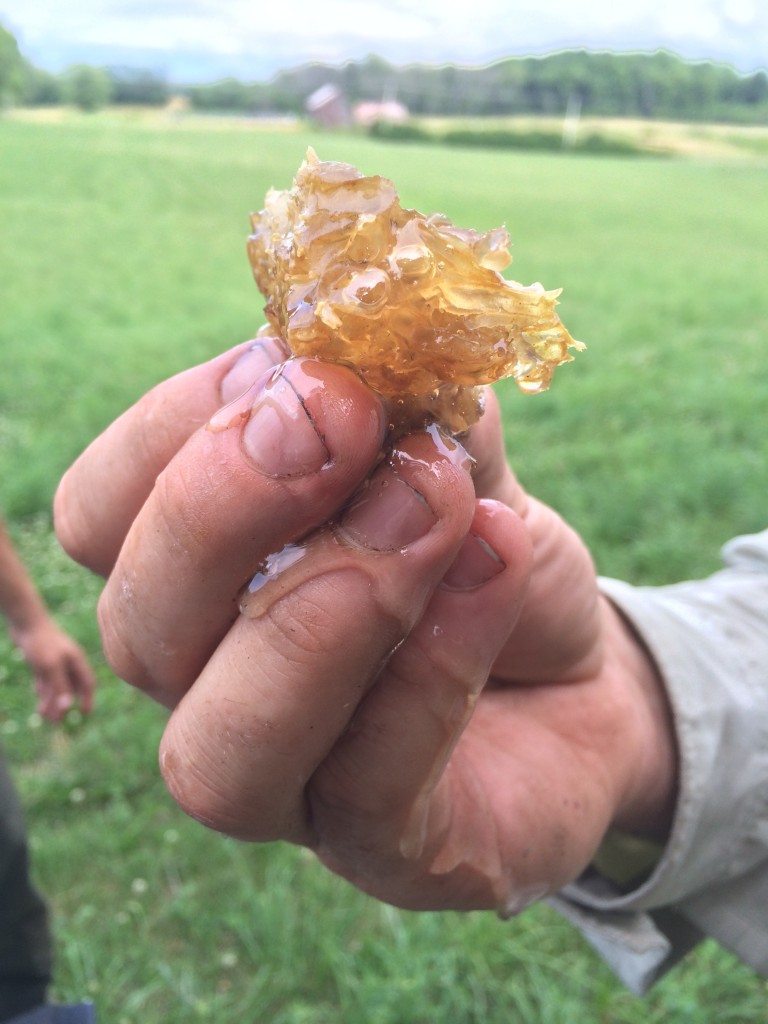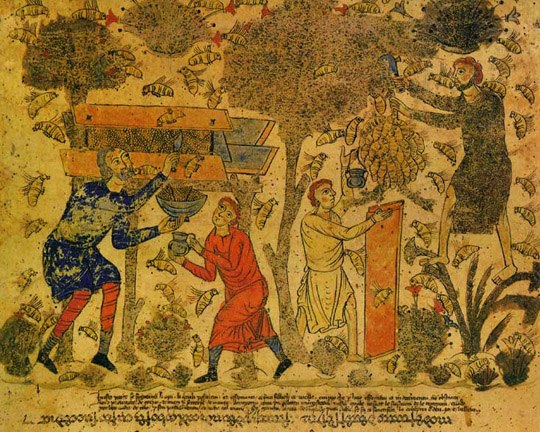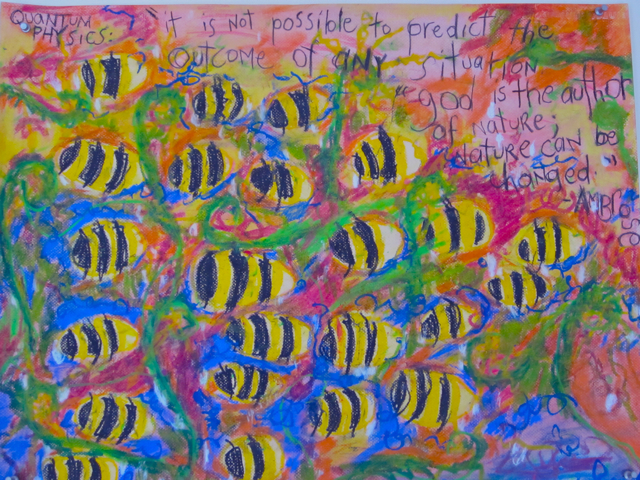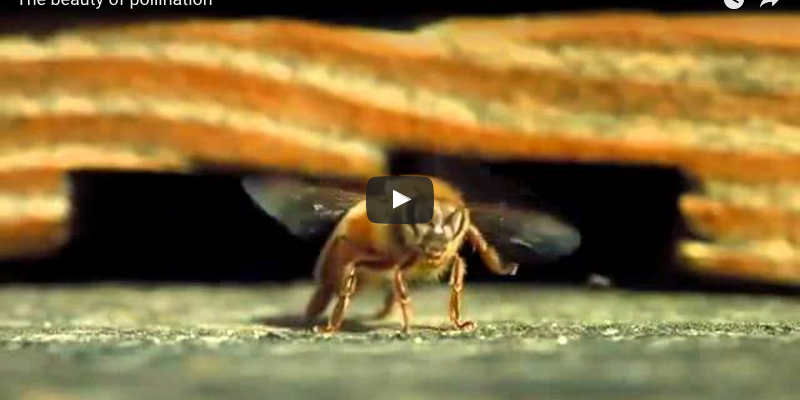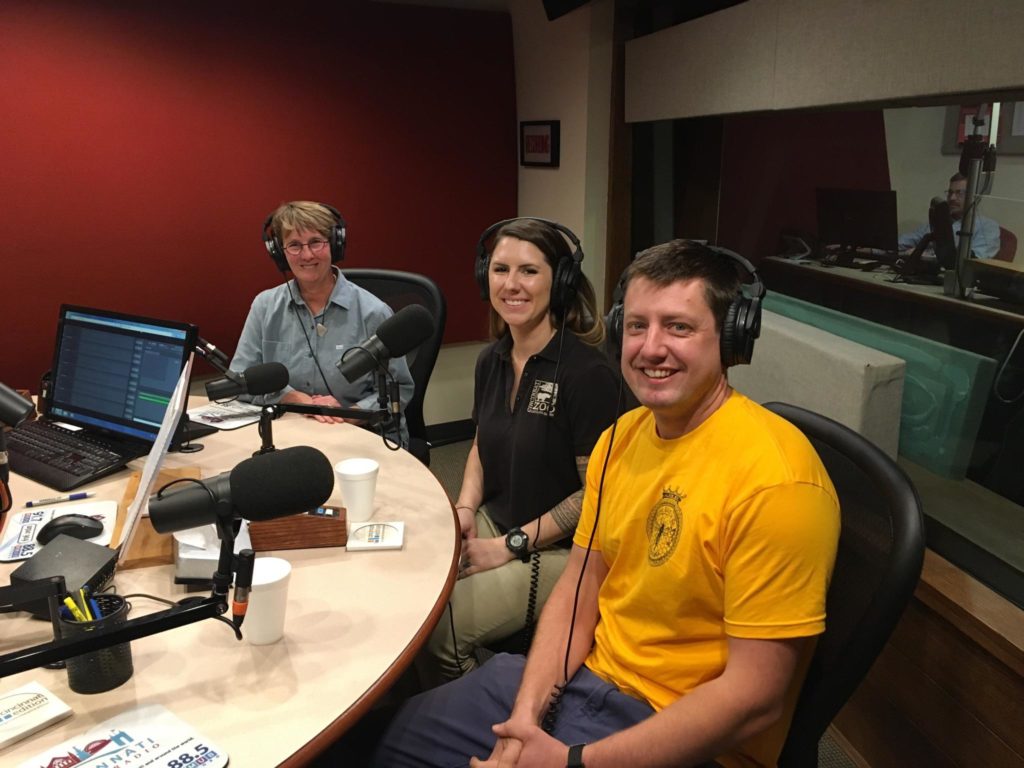
Reader, on Monday, November 7th, two of my friends and I spoke about beekeeping on WVXU, Cincinnati’s NPR station. And I have to tell you that someone over at ‘VXU is really good at editing. :) I know a thing or two about editing, and it’s not easy to do smoothly, but someone over there is first rate at it. Because there was one instance when I stumbled around a bit and went on a bit too long, and it’s not in the tape. THANK YOU, editor.
(That’s me on the left in the blue shirt and the round glasses; Melanie Evans of the Cincinnati Zoo & Botanical Garden’s Pollen Nation is in the center; and Carlier Smyth of Queen City Bee Co is closest. I love those big headphones and fuzzy mics.)

